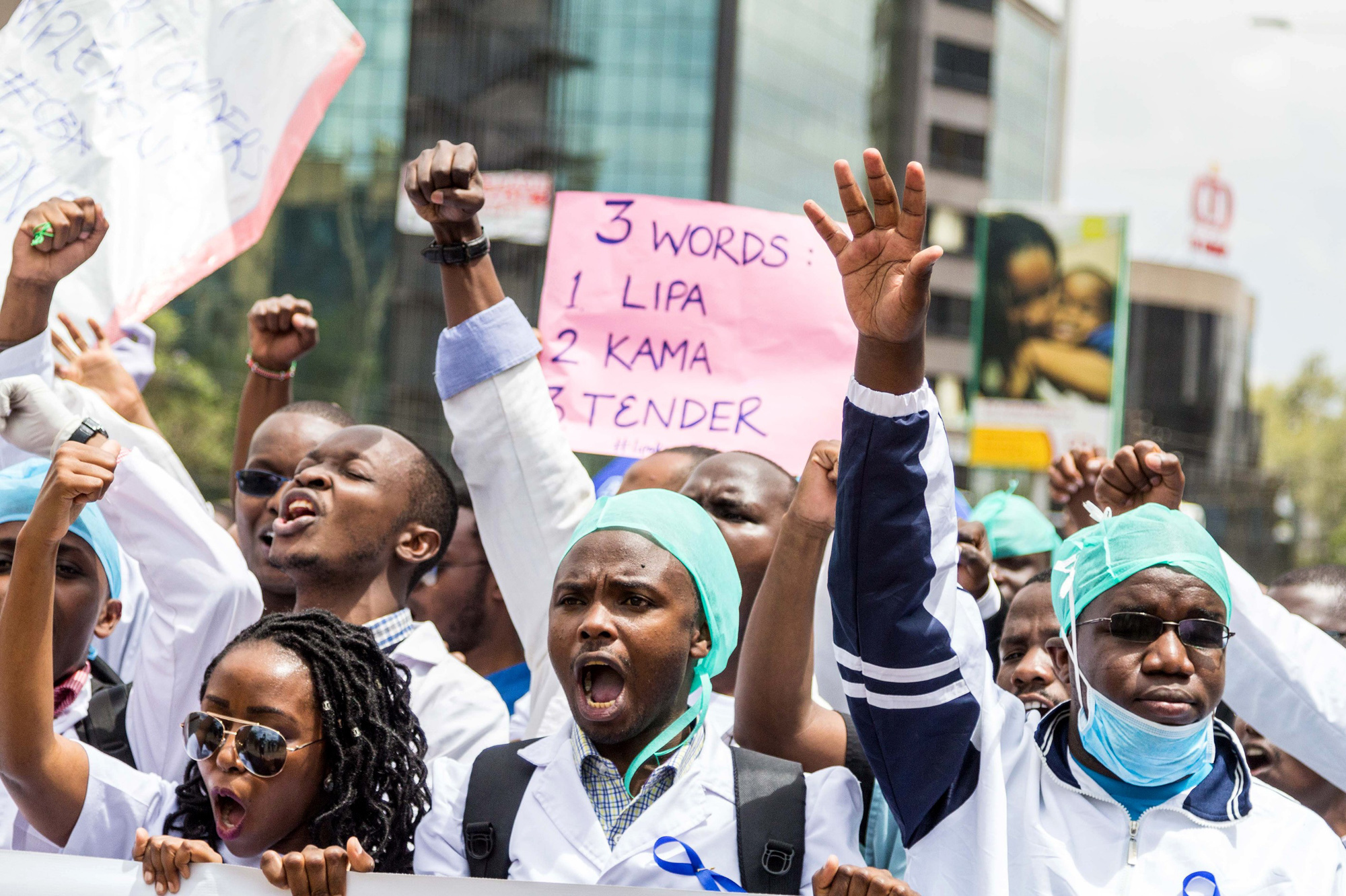Public hospitals across Kenya are facing a critical shortage of medical staff as the nation’s doctors continue their strike for the seventh consecutive day. The strike, led by the Kenya Medical Practitioners Pharmacists and Dentists Union, highlights the government’s failure to fulfill promises made in a 2017 collective bargaining agreement. This agreement came about after a prolonged 100-day strike that resulted in significant public healthcare disruptions and deaths due to lack of medical care.
The union’s demands include comprehensive medical coverage for doctors and the employment of 1,200 medical interns, promised but not delivered by the government. Despite a labor court’s order to pause the strike for negotiations, approximately 4,000 doctors remain on strike, mirroring the government’s previous disregard for court orders related to doctors’ pay and reinstatement of suspended medical professionals.
The strike’s impact is widespread, with patients across the East African nation facing long waits and denied services at hospitals. Josephine Njeri, a patient at Kenyatta National Hospital, reported spending hours awaiting medical attention to no avail.
In response to the crisis, Health Cabinet Secretary Susan Nakhumicha visited Kenyatta National Hospital, asserting that referral hospitals were functioning adequately and promising government action to ensure all national hospital facilities remained operational.
This strike recalls the 2017 healthcare crisis, where doctors demanded improved wages, the revival of dilapidated health facilities, ongoing professional development, and increased hiring to combat the acute shortage of health professionals. At that time, the salary of public doctors, who undergo six years of university education, was on par with police officers trained for six months, ranging from $400 to $850 a month.

